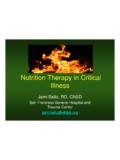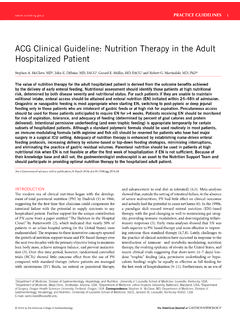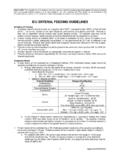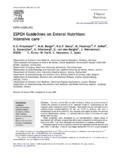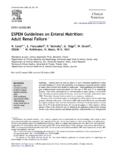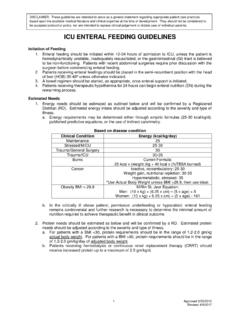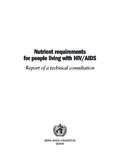Transcription of PROGRAM HANDBOOK AND POLICY MANUAL 2016-2017
1 Department of Anesthesiology critical Care Medicine Fellowship PROGRAM PROGRAM HANDBOOK AND POLICY MANUAL 2016-2017 University of Colorado School of Medicine Anesthesia critical Care Medicine Fellowship 1 GME 5/21/2015 PROGRAM Personnel and Contact Information Faculty Listing and Clinical/Research Interests Faculty Clinical / Research Interests Jason Brainard, MD Assistant Professor PROGRAM Director critical Care Medicine Benjamin Scott, MD Assistant Professor Associate PROGRAM Director critical Care Medicine Muhammad Azam, MD Associate Professor critical Care Medicine Karsten Bartels, MD Assistant Professor critical Care and Pain Medicine David Fullerton, MD Professor Cardiothoracic Surgery Eva Grayck, MD Professor Pediatric critical Care Medicine Maung Hlaing, MD Assistant Professor Adult Cardiothoracic Anesthesiology and critical Care Medicine Abigail Lara, MD Assistant Professor Pulmonary Sciences and critical Care Medicine Robert McIntyre, MD Associate Professor Traumatology and Surgical critical Care Erik Peltz, DO Assistant Professor Traumatology and Surgical critical Care Breandan Sullivan, MD Assistant Professor critical Care Medicine Gregory Weiss, MD Assistant Professor critical Care Medicine Paul Wischmeyer, MD Professor critical Care and Clinical Nutrition Scott Wolf, MD Assistant Professor critical Care Medicine Jason Brainard, MD Fellowship PROGRAM Director and Assistant Professor 303-848-6724 Phone 303-724-1761 Fax Christine Cook Fellowship PROGRAM Coordinator 303-724-1758 Phone 303-724-1761 Fax Benjamin Scott.
2 MD Associate PROGRAM Director and Assistant Professor 303-848-6845 Phone 303-724-1761 Fax University of Colorado School of Medicine Anesthesia critical Care Medicine Fellowship 2 GME 5/21/2015 PROGRAM Curriculum ANESTHESIOLOGY critical CARE MEDICINE CURRICULUM The one-year Anesthesiology critical Care Medicine Fellowship will be divided into 13 separate four-week block rotations. As per ACGME requirements, ten blocks will be dedicated to clinical care in one of four intensive care units at University of Colorado Hospital. One block of time will be dedicated to formal echocardiography training and another to training and involvement in research. The remaining blocks is elective and can be used for an additional ICU rotation, ultrasound and echocardiography training, subspecialty rotation (ex. bronschopy, transplant surgery, or infectious disease), or additional dedicated research time. The core clinical training is focused in the Surgical Intensive Care Unit (SICU) and Cardiothoracic Intensive Care Unit (CTICU) with four blocks of time devoted to training in each of these two ICUs.
3 The additional two blocks of critical care time will be completed in the Medical Intensive Care Unit (MICU) and Neurology/Neurosurgery Intensive Care Unit (NeuroICU). All critical care teams at University of Colorado Hospital (UCH) are led by an attending intensivist and team members include fellows, residents, advanced practice providers, nurses, respiratory therapists, pharmacists, physical and occupational therapists, and social workers. Detailed information on ICU and non-ICU rotations are listed below. Cardiothoracic Intensive Care Unit (CTICU) The UCH CTICU is an 18-bed unit admitting patients from cardiac, thoracic, and vascular surgery services. The unit is co-directed by Breandan Sullivan and David Fullerton from the Departments of Anesthesiology and Surgery, respectively. Patient care is managed by a multidisciplinary critical care team, led by an attending intensivist from the Department of Anesthesiology or Surgery.
4 The CTICU population includes patients undergoing heart and lung transplantation and ventricular assist device (VAD) insertion, coronary revascularization, valve surgery, aortic reconstructive surgery, major vascular surgery, lobectomy and pneumonectomy. The CTICU is also home to a growing population of patients managed with veno-venous and veno-arterial extracorporeal membrane oxygenation (ECMO). Surgical and Trauma Intensive Care Unit (STICU) The UCH STICU is a 24-bed unit, and admits patients from multiple surgery services including: general surgery, surgical oncology, trauma and acute care surgery, transplant, ENT, orthopedics, plastics, and gyn-onc services. The unit is co-directed by Jason Brainard and Robert McIntyre from the Departments of Anesthesiology and Surgery, respectively. Patient care is managed by a multidisciplinary critical care team, led by an attending intensivist from the Department of Anesthesiology or Surgery.
5 University of Colorado School of Medicine Anesthesia critical Care Medicine Fellowship 3 GME 5/21/2015 The SICU population most commonly includes patient following major oncologic surgery, transplant surgery, and trauma and emergency surgeries and those with perioperative complications. The SICU also cares for all blunt and penetrating trauma patients requiring critical care services. Medical Intensive Care Unit (MICU) The UCH MICU is a 24-bed unit admitting critically ill patients from all medical services. The unit is directed by Ellen Burnham from the Division of Pulmonary critical Care in the Department of Medicine. Patient care is managed by a multidisciplinary critical care team, led by an attending intensivist from the Division of Pulmonary critical Care Medicine. The MICU population includes a diverse pulmonary critical care and subspecialty medical critical care patient population. Neurology / Neurosurgery Intensive Care Unit (NeuroICU) The UCH NeuroICU is a 24-bed unit admitting critically ill patients with primary neurological illnesses and those from the neurosurgical service.
6 The unit is directed by Robert Neumann from the Department of Neurosurgery. Patient care is managed by a multidisciplinary critical care team, led by an attending intensivist from the Department of Neurosurgery. The NeuroICU population includes patients affected by neurologic conditions including hemorrhagic and non-hemorrhagic CVA, meningitis and encephalitis, and postoperative patients following intracranial and major spine surgery. The NeuroICU also cares for patients with primary neurotrauma. Echocardiography Rotation The echocardiography block is designed to provide formal training in critical care echocardiography, including both transthoracic and transesophageal echocardiography. Education includes a didactic PROGRAM , high-fidelity echo simulation, and bedside application. Teaching is provided by faculty Anesthesiologists and Cardiologists board certified in echocardiography. Research Rotation All fellows will utilize at least one block for the purpose of training and involvement in research.
7 Education will include didactic learning focused on building an academic career and critical care research will be available to fellows in basic, translational, or clinical research categories. The intensivist group within the Department of Anesthesiology has multiple funded researchers focused on critical care nutrition, infectious disease, delirium, post-operative respiratory function, surgical outcomes, critical care quality improvement and patient safety. In the first month of the fellowship year, fellows will meet with the PROGRAM Director and Director of Research for the fellowship and be guided to a specific project and research mentor. University of Colorado School of Medicine Anesthesia critical Care Medicine Fellowship 4 GME 5/21/2015 PROGRAM GOALS AND OBJECTIVES The curriculum is based on achievement of the clinical competencies outlined below: Patient Care Fellows will provide clinical care and consultation, under the direction and supervision of faculty members, by evaluating a patient's medical condition, determining the need for critical care services, and, as appropriate formulating a plan of care, including: Incorporation of ethical aspects of critical care medicine into practice; Diagnosis and management of cardiovascular dysfunction; Diagnosis and management of pulmonary dysfunction; Diagnosis and management of sepsis and septic shock; Diagnosis and management of renal dysfunction, to include techniques for renal replacement therapies.
8 Diagnosis and management of hematologic disorders, to include coagulopathies; Diagnosis and treatment of hepatic dysfunction; Evaluation and management of central and peripheral nervous system dysfunction; Management of life threatening medical illness, to include oncologic, dermatologic, and endocrinology illnesses; Indications for and interpretation of laboratory results; Psychiatric implications of critical illness; Palliative and end-of-life care; Routine incorporation of standards of care and established guidelines or procedures for patient safety and error reduction Demonstration of patient management and psychomotor (procedural) skills required for the practice of the subspecialty, and demonstrate acquisition of the skills and habits of self- assessment and reflection. Coordinating care across medical specialties, as appropriate, to communicate patient status, plans of care, and long-term needs of the patient to other health care providers, and to collaborate in the management of the critically-ill patient.
9 Fellows will demonstrate proficiency in procedural skills and sound clinical judgment in the care of patients with complex medical and surgical conditions in the following proficiency areas: Airway maintenance and management, to include fiberoptic approaches to the airway for both diagnostic and therapeutic purposes; Indications for and placement of percutaneous tracheostomies; Invasive and non-invasive ventilatory support; Techniques for and therapeutic treatment of conditions requiring thoracentesis and/or tube thoracotomy when indicated; Diagnosis and pharmacologic and mechanical support of circulation, myocardial function, and shock; University of Colorado School of Medicine Anesthesia critical Care Medicine Fellowship 5 GME 5/21/2015 Cardiopulmonary resuscitation (CPR); Placement and management of arterial, central venous, and pulmonary arterial catheters; Emergent and therapeutic placement of pacemakers; Fluid resuscitation and management of massive blood loss; Prescribing enteral and total parenteral nutrition; Ultrasonography for transthoracic (TTE) and transesophageal (TEE) echocardiography, facilitation of invasive catheter placement, and diagnostic studies and therapeutic interventions relevant to the critically-ill patient; and Pain management, sedation, and anxiolysis for the critically-ill patient.
10 Medical Knowledge Fellows will demonstrate knowledge in those areas appropriate for a subspecialist in anesthesiology critical care medicine. Resuscitation; Cardiovascular physiology, pathology, pathophysiology, and therapy; Respiratory physiology, pathology, pathophysiology, and therapy; Renal physiology, pathology, pathophysiology, and therapy; Central and peripheral nervous system physiology, pathology, pathophysiology, and therapy; Pain management, sedation, and anxiolysis for critically-ill patients; Recognition and management of altered states of consciousness, to include delirium; Metabolic and endocrine effects of critical illness; Infectious disease physiology, pathology, pathophysiology, and therapy; Primary hematologic disorders and hematologic disorders secondary to critical illness; Transfusion therapy; Gastrointestinal, genitourinary, obstetric, and gynecologic disorders; Trauma, to include burn management.

